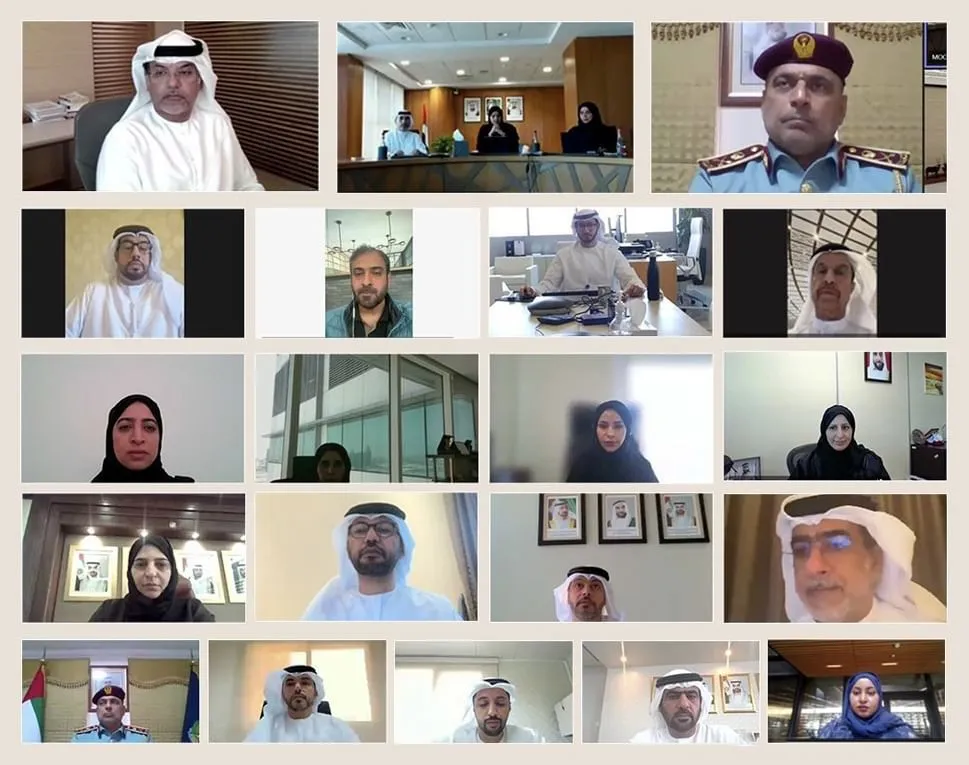The National Committee of Biosecurity held its second meeting for 2024 covering a wide range of critical topics to enhance the biosecurity in the UAE.
The committee placed particular emphasis on the need to strengthen mosquito control efforts, particularly following the extraordinary climatic event that resulted in record-breaking rainfall in the country. The committee also discussed Epidemic Preparedness Map Project and National Biosecurity Framework.
Dr. Amna bint Abdullah Al Dahak Al Shamsi, Minister of Climate Change and the Environment, chaired the second meeting of the National Committee of Biosecurity, which was held virtually.
Dr. Al Dahak emphasised that the UAE considers biosecurity as one of its top priorities. This is demonstrated in the country’s implementation of an integrated ecosystem for sustainable biosecurity that encompasses a robust legislative structure, laws and decisions.
She said, “We are working to ensure sustainable national biosecurity in all the emirates, with special focus on efforts to control mosquito proliferation, especially following the exceptional weather conditions in the country. We will take all necessary steps in collaboration with the relevant authorities to accomplish this goal and remain committed to the cause going forward.”
Dr. Al Dahak expressed gratitude to the members of the National Committee of Biosecurity and all the working teams, saying, “We appreciate the teams’ unwavering efforts, their outstanding work in improving the biosecurity of the UAE and their commitment to maintaining sustainable biosecurity at all times.”
The meeting also discussed other important topics in the field of biosecurity in the UAE, including updates on the execution of the ‘National Biosecurity Framework 2023-2032’ and the ongoing efforts to expedite the implementation of its requirements in collaboration with the National Committee of Biosecurity on several key files.
The presentation of the Epidemic Preparedness Map Project, which includes an introductory workshop on its uses for technical teams from the relevant authorities and academics, was also covered during the meeting. Additionally, coordination with the Cyber Security Council and the UAE Data Centre was discussed, to analyse the current situation and develop programmes and forge links between authorities to ensure decision-makers are adequately prepared and have access to information.
During the meeting, strategies for improving mosquito control throughout the UAE across all emirates were discussed. These included, monitoring mosquito proliferation and the areas of their spread, coordinating control efforts with relevant authorities across all emirates, and educating the public about sustainable behaviours that can help prevent mosquitoes and control their population effectively.
The meeting was attended by Mohammed Saeed Al Nuaimi, Under-Secretary of the Ministry of Climate Change and the Environment; Major General Jassim Mohammed Al Marzouqi, Commander-in-Chief of Civil Defence at the Ministry of Interior; Colonel Saeed Nasser Ahmed Al Kaabi, Deputy Commander of Chemical Defence at the Ministry of Defence; Dr. Hussain Abdul Rahman Al Rand, Assistant Under-Secretary for Public Health Sector at the Ministry of Health and Prevention; and Alia Abdul Rahim Al Harmoudi, Assistant Under-Secretary for Sustainable Communities sector at the Ministry of Climate Change and the Environment.
The meeting was also attended by Mohammed Ahmed Al Kuwaiti, Director-General of the General Administration of Ports Security, Federal Authority for Identity, Citizenship, Customs & Port Security; Rashed Bin Mohamed Alrassas Almansoori, Animal Wealth Executive Director, Abu Dhabi Agriculture and Food Safety Authority; Dr. Marwan Al Kaabi, Acting Chief Executive Officer at Sheikh Shakhbout Medical City (SSMC) – Pure Health; Dr. Naseem Rafie, Acting CEO of the Health and Safety Department at Dubai Municipality; and Hamad Saif Al Kaabi, Director of the Hazardous Materials Incidents Department at NCEMA.
Badria Almarzouqi, Director of International Security Cooperation Department at the of Foreign Affairs; Khalfan Abdul Aziz Al Suwaidi, Director of the Natural Reserves and Enforcement Department at the Environment Agency Abu Dhabi; Saeed Saleh Al Mahrezi, State Security Representative at the State Security Department; Mohammed Nasser Al Qubaisi, Director of the Hazardous Materials Department at the Weapons and Hazardous Substances Office, Ibrahim Malallah Al Hammadi, Head of the Hazardous Materials Regulation and Development Department in the Weapons and Hazardous Materials Office; Hajar Alketbi, Director of Government Communication Department at the Ministry of Climate Change and the Environment, and Ibrahim Hassan Al-Dhanhani, Director of the Environmental Disasters Department at the Ministry of Climate Change and the Environment, also attended the meeting.

